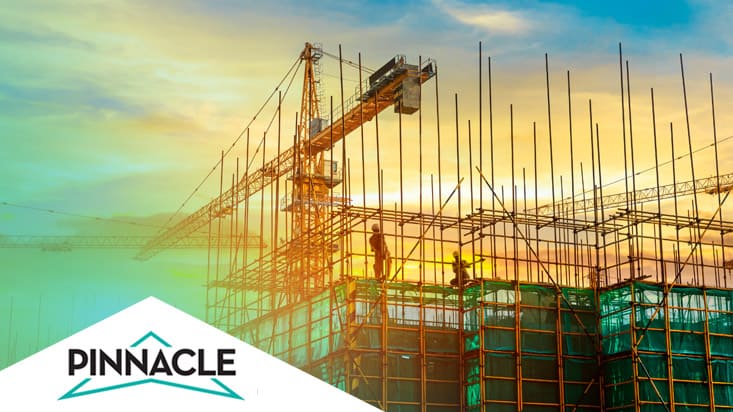Surety bonds are a type of insurance against a contractor’s failure to deliver. They are an agreement between a surety bond company and the customer to pay the client if the contractor fails to perform. The contractor is normally responsible for the bond cost, which is likely to be included in the price of the contractor’s tender.
Call: (844) 612-7238 to get started
Bonds can be both on-demand or conditional. Conditional bonds require the client to present proof that the contractor has failed to meet their contractual commitments and has experienced a loss as a result.
The first step for any contractor or construction company in obtaining a surety bond is to determine which sort of surety bond or bonds they require for the job at hand. They must make certain they are aware of the bonding amount as well.
There are various types of construction contract bonds, which we will cover below.
Performance bonds
 A performance bond is typically used to protect a client from in the event that a contractor may fail to fulfill contractual obligations to the customer, but they can also be demanded from other parties.
A performance bond is typically used to protect a client from in the event that a contractor may fail to fulfill contractual obligations to the customer, but they can also be demanded from other parties.
The performance bond is usually set at 10% of the value of the contract. This compensation may be able to help the client manage any issues that have arisen as a result of the contractor’s non-performance.
The financial soundness of the entity vying to win a contract will determine whether or not a performance bond is required, as the most prevalent issue is a contractor falling insolvent before completing the contract. When this happens, the performance bond guarantees compensation from a third party up to the amount of the performance bond.
Bid bonds
Bid bonds, sometimes known as contract bonds, may be required as part of a global tender procedure. On-demand bonds are typically provided with a tender to secure the tender’s commitment to begin the contract. If the winning tenderer fails to execute the contract or meet other stated criteria, the bond is partially or completely revoked.
The presence of a bid bond is meant to provide the client peace of mind that the tenderer has the financial means to accept the contract at the price stated in their offer.
If the bond is partially or completely forfeited, the contractor and the surety are equally and severely accountable for the bond, including any extra costs the client accrues in selecting and awarding another vendor. This is frequently the difference between the lowest and second-lowest bids.
Permit bonds
Construction permit bonds are a form of surety bonds that are required as a condition of getting a construction permit by a local municipality or a state agency. These permit bonds are essential to maintain public safety, preserve a municipality’s financial interests, and make sure that licensed contractors follow building rules.
The permit bond, or license bond, is meant to give a financial guarantee to the city, county, or state agency that the contractor will follow all applicable local rules, statutes, and permit rules. The bond can also act as an assurance to a municipality that the city or county property will be returned to its former condition once the development is finished.
Due to construction that may result in work being performed on city or county property, the property owner, not the contractor, may sometimes be required to secure a permit bond.
Payment bond
The payment bond is frequently provided in conjunction with the performance bond in the construction business. The payment bond is a three-way agreement between the owner, the contractor, and the surety to ensure that all subcontractors, laborers, and material suppliers are paid and the project is lien-free. A Payment Only Bond is seldomly asked for and is normally priced at roughly half the typical rate.
Subdivision bonds
 A subdivision bond is an “off-site” surety bond that covers all components of the construction of a new subdivision, including streets, sewers, drainage ditches, gutters, and dwellings. A subdivision surety bond is a form of insurance that assures the project developer that the work within the subdivision will be performed in accordance with the contract’s terms.
A subdivision bond is an “off-site” surety bond that covers all components of the construction of a new subdivision, including streets, sewers, drainage ditches, gutters, and dwellings. A subdivision surety bond is a form of insurance that assures the project developer that the work within the subdivision will be performed in accordance with the contract’s terms.
Although subdivision bonds are comparable to other construction bonds, a developer’s position and responsibilities differ significantly from those of a contractor signing a public works contract.
The developer, not the Project Owner or the Government Agency, is the one who initiates land development in subdivisions. Before being approved to begin construction by the Project Owner or Government Agency, the developer must comply with state rules and engage in a Subdivision Agreement. As needed, this authorization may be modified to allow for the construction of subdivision improvements.
Completion bonds
A completion bond is a contract that ensures monetary reimbursement in the event that a project is not completed on time. It protects the project if the contractor goes bankrupt or if any other financial issues arise.
Choosing a provider for construction contract bonds
At Pinnacle Surety, we make getting construction contract bonds a simple and stress-free process. It is easy to get the coverage that you need. We have worked with construction companies and contractors for over 25 years. We will be able to supply you with a service that matches your needs. We can assist you in obtaining the appropriate bonds for your company and project, as well as ensuring that you are aware of your choices for additional benefits. Let our team of experts make the process of obtaining construction contract bonds for you as simple as possible.
Take advantage of our hassle-free approach for obtaining a surety bond. We understand how busy you are, so we have done all the groundwork for you. All you have to do is enter your license information and follow the step-by-step instructions, and you’ll be fully protected and functioning in accordance with all current rules and legal requirements. Call Pinnacle Surety today to find out more about the various construction contract bonds.


